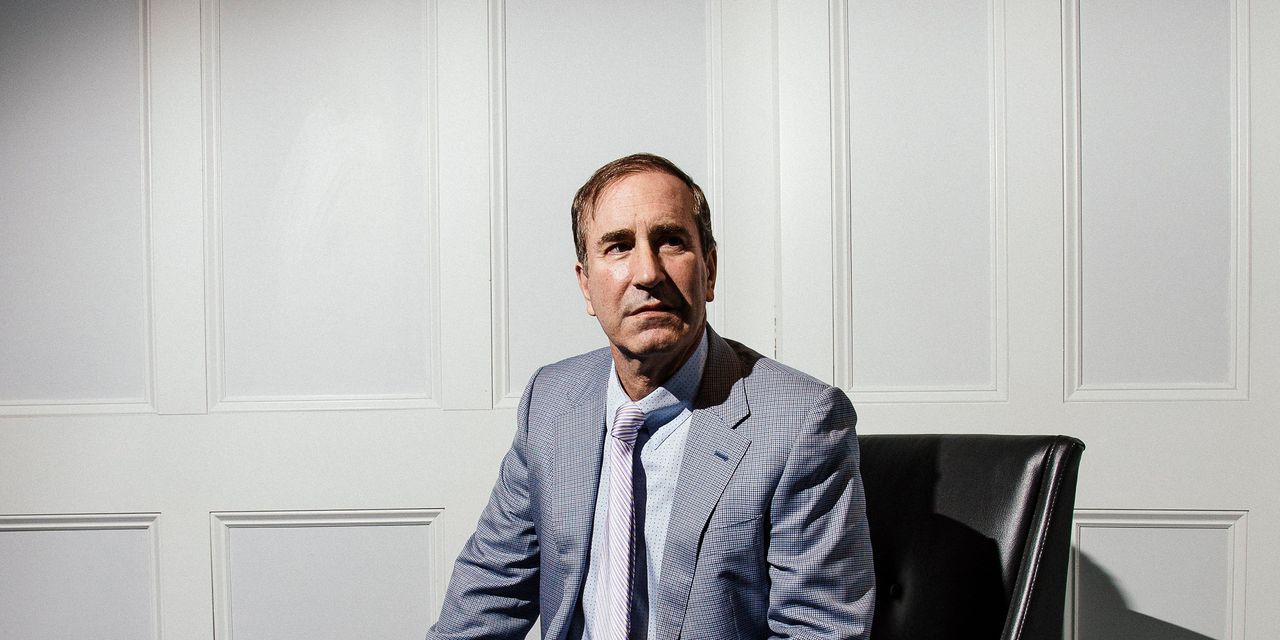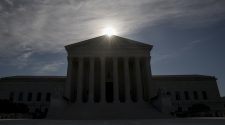An accounting expert who raised red flags about
Bernie Madoff
’s Ponzi scheme has a new target:
General Electric
Co.
In a research report posted online Thursday,
Harry Markopolos
alleges the struggling conglomerate has masked the depths of its problems, resulting in inaccurate and fraudulent financial filings with regulators. The report, which numbers more than 170 pages and was reviewed by The Wall Street Journal, is a mixture of detailed financial analysis and sweeping claims.
Mr. Markopolos said, in an interview ahead of the report’s release, his group found GE’s insurance unit will need to bolster its reserves by $18.5 billion in cash and faulted the way the company is accounting for its oil-and-gas business. All told, he said, the accounting problems amount to $38 billion, or 40% of the conglomerate’s market value.
“GE stands behind its financials. We operate to the highest level of integrity in our financial reporting and we have clearly laid out our financial obligations in great detail,” a GE spokeswoman said in an email before the report was published. “While we can’t comment on the detailed content of a report that we haven’t seen, the allegations we have heard are entirely false and misleading.”
Mr. Markopolos said he and his colleagues are working with an undisclosed hedge fund, which is betting GE’s share price will decline. Mr. Markopolos’s group gave the investor access to the research prior to publication and will receive a portion of any trading proceeds. He declined to identify the hedge fund. The group also is sharing its findings with securities regulators, hoping to collect a cash reward as part of a whistleblower program, Mr. Markopolos said.
The group’s research indicates that GE is short on working capital—a key measure of liquidity—and that its cash situation is far worse than disclosed in its regulatory filings.
GE said it hasn’t been contacted by Mr. Markopolos and that the group’s report was produced to help short sellers profit by creating volatility in GE’s shares. “We will not be distracted by this type of meritless, misguided and self-serving speculation and neither should anyone in the investor community,” the GE spokeswoman said.
The Boston-based investor-turned-investigator warned the Securities and Exchange Commission about the Madoff investment scheme years before it became public, but was ignored. In a more recent campaign, Mr. Markopolos helped expose a foreign-currency trading scandal at several banks. He has helped spawn a cash-for-tips whistleblower industry.
GE is already under investigation by the SEC and Justice Department for potential accounting issues that have come to light in the past two years related to its insurance holdings and problems in its power division. The company has denied accounting fraud in response to lawsuits and said it is cooperating with investigators. GE has said it is considering switching auditors after using KPMG LLP for more than a century.
The Markopolos group said it plans to present its report to the SEC and to meet with federal prosecutors and investigators about its findings. In the report, the group says some information will be given exclusively to law enforcement.
An SEC spokesman declined to comment.
After two difficult years, GE has shown signs of stability in its business this year and recently nudged higher its financial guidance for the first time in years. From the perspective of an investor betting against the share price, much of the decline in GE stock has already happened. Shares are close to $9, where they have spent much of 2019. The share price was above $30 at the beginning of 2017 and near $7 at the end of 2018.
The Markopolos group includes
John McPherson,
co-founder of MMS Advisors, forensic accountants specializing in the insurance industry. The group worked for seven months to analyze GE’s accounting.
Mr. Markopolos said he is going public with the report now because the group just finished its work. It had been working on another insurance case when GE’s insurance problems caught its eye, he said.
The group claims GE’s long-term-care insurance holdings are a bigger liability than the company is letting on. The report estimates GE will need to boost its insurance reserves by $18.5 billion in cash and take a $10.5 billion charge because of an accounting change required by 2021.
Those figures are on top of a $15 billion reserve boost already taken by GE over seven years to cover its exposure to long-term care policies, which cover expenses like nursing homes and assisted living. The policies have proved to be a problem for many insurers. The companies drastically underestimated the number of future claims and how long people would draw on the coverage before dying.
Mr. McPherson said the group found issues with GE’s long-term care insurance by reviewing statutory insurance filings, financial documents required by state regulators that require different accounting than corporate financial statements.
The group went back a decade and, because GE’s long-term care business involved reinsuring policies issued by other insurers, it also examined the underlying filings for those other insurers.
The report claims that policy premiums paid to GE are low compared with what rivals typically receive and that GE isn’t receiving any premiums at all on more than a quarter of policies, because those contracts are considered paid in full. The group says that, even after the $15 billion boost, GE’s reserves are well below what would be expected for such a troubled group of policies.
GE in the early years front-loaded gains from the long-term-care business by collecting premiums when policyholders were young, the group claims, but failed to properly record reserves as the covered population aged and claims ran at higher levels than originally expected.
In March, GE executives hosted a conference call to assure investors they had a handle on the insurance business. GE said that it planned to push to raise policy premiums and shift investments to boost returns and that it had adequate reserves to cover expected claims. “We believe our assumptions are appropriate in the aggregate,”
Tim Kneeland,
head of the insurance unit, said at the time.
The Markopolos group also alleges that GE’s ownership of oil-and-gas business Baker Hughes isn’t being properly accounted for and that the company should have booked $9.6 billion of losses on the investment. Last year GE recorded a $2.2 billion loss on the sale of part of its Baker Hughes stake, reducing its ownership from 62.5% to 50.2%.
In SEC filings, GE has disclosed that selling below 50% will trigger it to stop reporting Baker Hughes’s financial results as part of its own and record its loss on the rest of its investment. GE said its paper loss on the remaining investment was about $7.4 billion as of July 24, according to the company’s 10-Q report.
Mr. Markopolos said that the Baker Hughes stake is now “strictly an investment” and that GE as of 2018 has been improperly holding back from recording the loss, thus inflating its financial results. GE should be simply recording the value of its investment in the company, Mr. Markopolos said, a change he said could strain GE debt agreements.
GE responds that, as a majority shareholder of Baker Hughes it is required to report consolidated results for Baker Hughes, under generally accepted accounting principles. GE says it is providing more transparent reporting by including Baker Hughes’s revenues and costs and assets and liabilities, rather than just giving a value for the investment.
Share Your Thoughts
What questions should authorities be asking of General Electric? Join the conversation below.
Write to Thomas Gryta at [email protected] and Mark Maremont at [email protected]
Copyright ©2019 Dow Jones & Company, Inc. All Rights Reserved. 87990cbe856818d5eddac44c7b1cdeb8

















